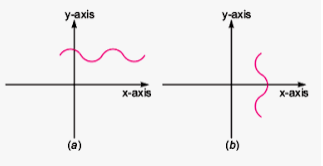What is the minimum number of ordered paris to form a non-zero reflexive relation on a set of n elements?Solution in Punjabi
Step by step video & image solution for What is the minimum number of ordered paris to form a non-zero reflexive relation on a set of n elements? by Maths experts to help you in doubts & scoring excellent marks in Class 12 exams.
Topper's Solved these Questions
Similar Questions
Which one of the following graph represents the function of x? Why?
 01:32View Solution
01:32View SolutionCompute P(A∣B),if P(B)=0.5 and P(A∩B)=0.32
03:56View SolutionState the reason for the relation R, in the set {1,2,3} given by R= {(1,2), (2, 1), not to be transitive.
01:56View SolutionLet R be a reflexive relation on a finite set A having n elements and let there be m ordered pairs in R, then
01:21View SolutionIf A is a skew symmetric matrix and B is an upper triangular matrix of order 'n', then the ratio of the maximum number of non-zero elements in A to the minimum number of zero elements in B is
01:56View SolutionIf a set A has 13 elements and R is a reflexive relation on A with a elementss, n∈Z+, then
01:38View SolutionIf the number of reflexive relations defined on a set A is 64, then the number of elements in A is _____
02:33View SolutionIf the numbers of different reflexive relations on a set A is equal to the number of different symmetric relations on set A, then the number of elements in A is
01:08View SolutionIf a set has 13 elements and R is a reflexive relation on A with n elements, then
01:38View SolutionThe number of reflexive relations of a set with four elements is equal to
01:49View SolutionThe number of relations form a set containing melements to a set containing n elements is
03:21View SolutionLet A be a set containing n elements. If the number of reflexive relations that can be defined on A is 64, then n is equal to
02:27View SolutionWhat is the minimum number of pairs to form a non - zero reflexive relation on a set of n elements?
02:25View SolutionThe number of reflexive relations of a set with four elements is equal to
02:08View SolutionIf the numbers of different reflexive relations on a set A is equal to the number of different symmetric relations on set A, then the number of elements in A is
04:47View SolutionLet R be a reflexive relation on a finite set A having n elements and let there be m ordered pairs in R, then
02:30View Solution

